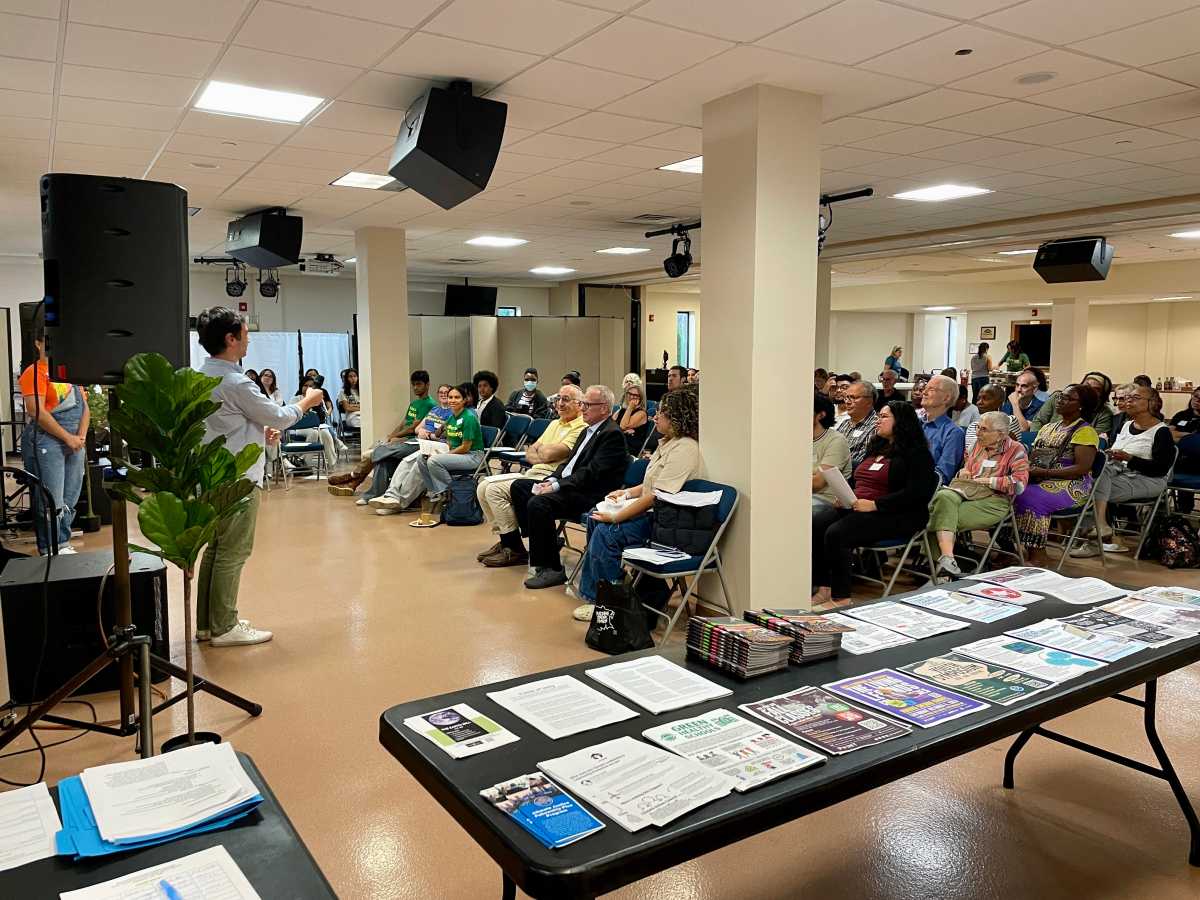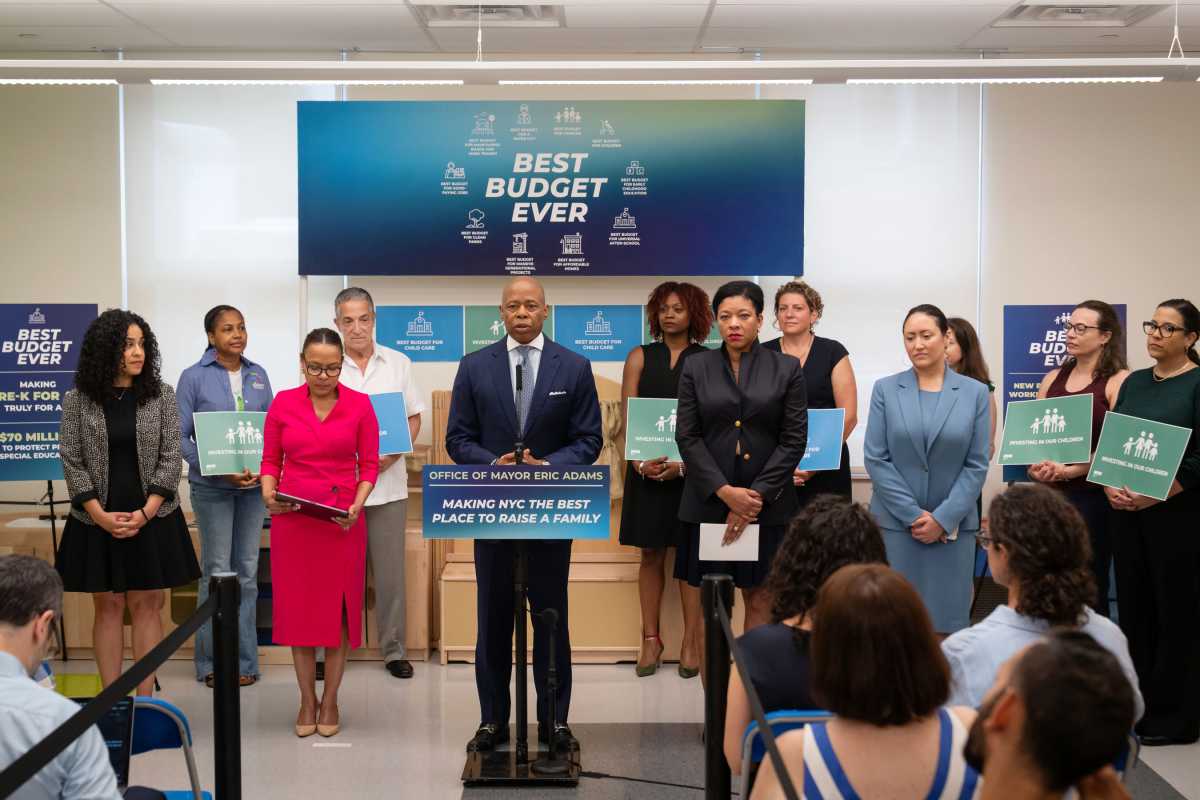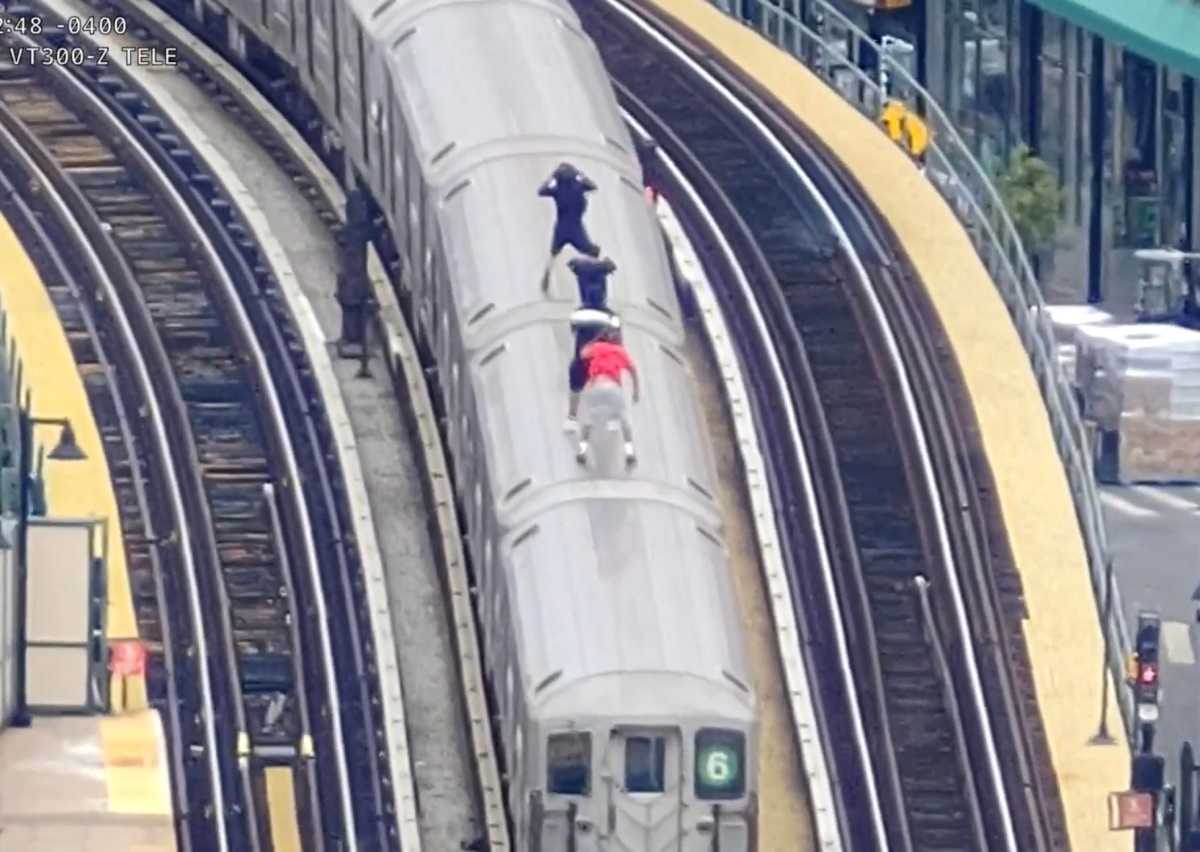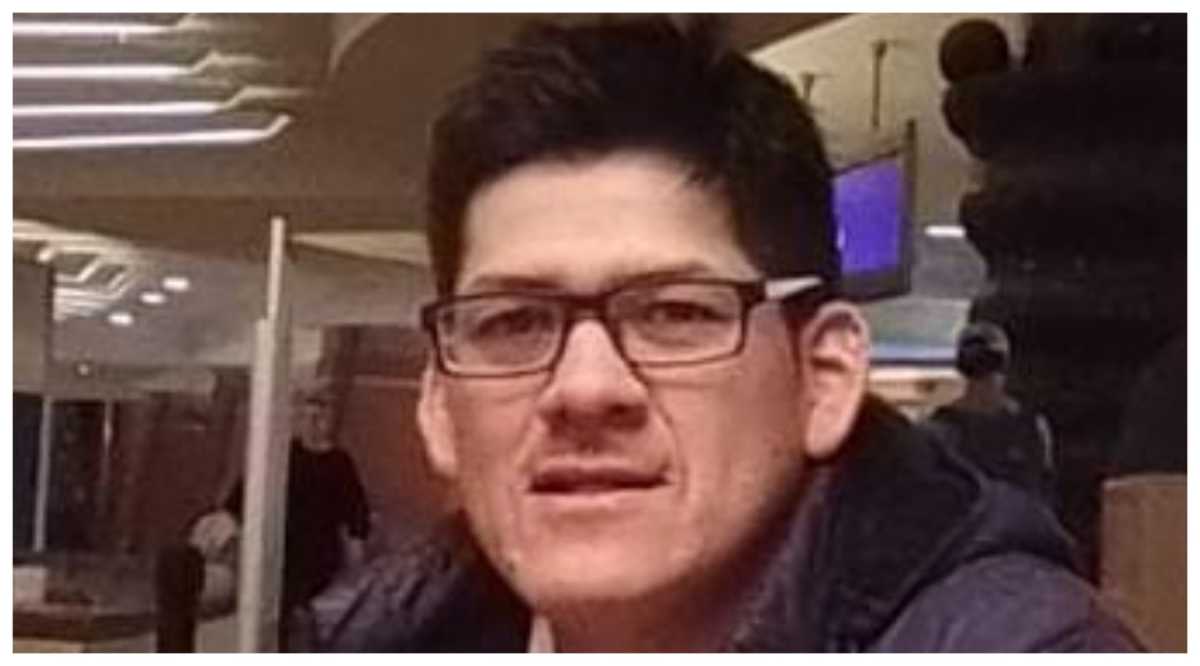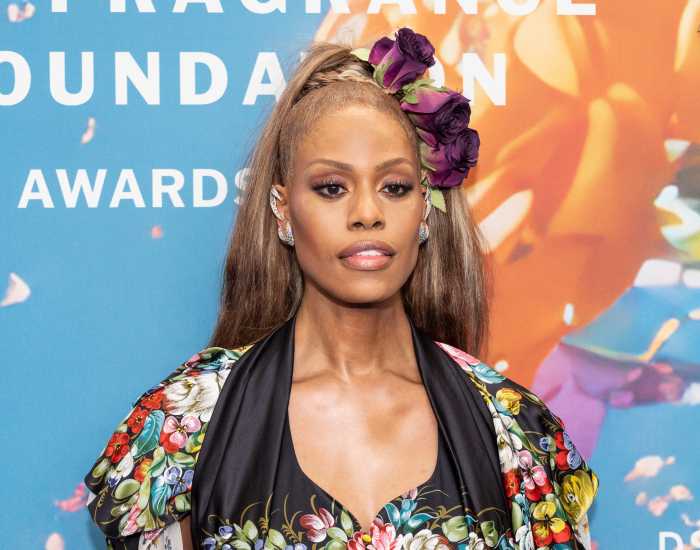More than a dozen Bronx-based community organizations came together Thursday to discuss climate justice issues and solutions with residents and their elected representatives.
The town hall, held at Bronx Bethany Church on East 227th Street, was a part education, part listening session. The first half of the evening was dedicated to reviewing current legislation, while the second half provided attendees with the opportunity to talk in small groups about how climate change and environmental justice impact their daily lives.
Dariella Rodriguez, Director of Community Development at The Point, one of the Bronx-based organizations leading the town hall meeting, spelled out the stakes as she addressed the crowd.
“We’re borrowing this earth from future generations,” she said. “I’m hoping that future generations don’t have to fight for the things we’re fighting for today. It gives me a lot of hope to see the level of passion and capacity that young people have for this work.”
Assembly Member Jeffrey Dinowitz, who represents Northwest Bronx, and representatives for other elected officials showed up to talk about legislation and hear from constituents about their concerns. Dinowitz talked about the State Assembly bill he sponsored called the Climate Change Superfund Act, which passed both the Assembly and the Senate and awaits Gov. Kathy Hochul’s signature. The bill would require major contributors to climate change to shoulder some of the financial burden of adapting to its consequences.
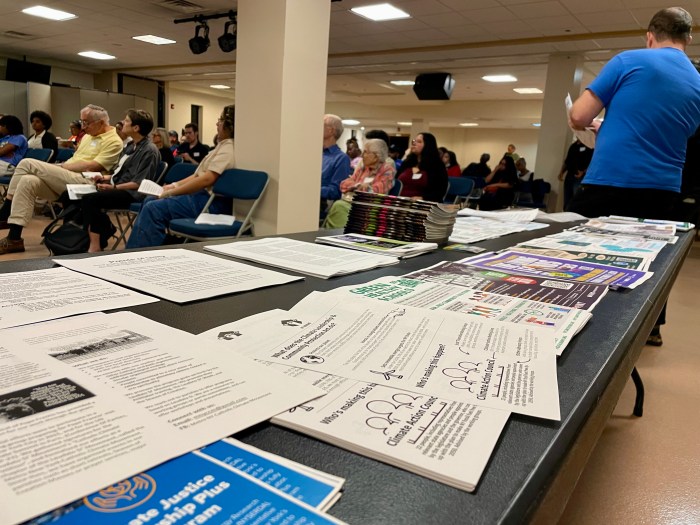
“They made the mess,” Dinowitz said. “They knew they were making the mess. They hid it, they lied about it, they didn’t do anything about it. Now all we are asking is that they help pay for the cost of cleaning up their mess.”
The funds levied by the bill would go toward items such as infrastructure, school air conditioning and updating sewage systems. It also requires that a minimum of 35% of the money raised by the bill be put toward communities that have suffered from the most detrimental impacts of climate change.
The meeting broke into groups to give Bronxites time to gather and discuss climate justice issues important to them. Attendees could focus on topics such as energy and utility bills, quality of life, environmental justice, health impacts, green jobs and community economic development or education and green healthy schools.
Much of the small group discussions were facilitated by Bronx youth from We Stay/Nos Quedamos, a community development corporation focused on sustainable development and empowering the people of the Bronx to stay and build healthy and thriving communities in the South Bronx. In the quality-of-life discussion, facilitators asked participants a series of questions about how their lives are impacted by environmental issues.
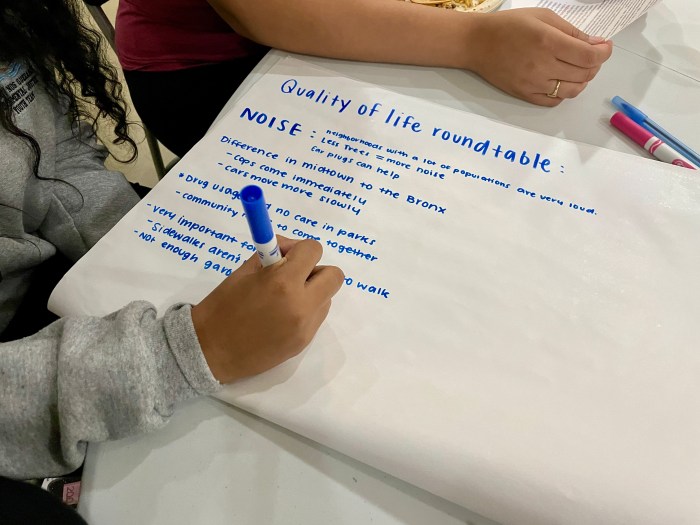
Judith Clarke, who has lived in the Bronx for 34 years, answered the question about how environmental stressors impacted her day-to-day life.
“If I was to move out of the Bronx, it would be because of the garbage,” Clarke said.
Clarke said that when she walks her young grandson to school, she would cross the street to avoid piles of garbage. She said that she picks it up where she can around her home, but that the issue across the borough was overwhelming.
As one facilitator led the discussion, another was taking notes to present to the town hall when all of the groups came back together.
One by one, a delegate from each group presented and summarized their discussion. Joeseph Giler from the Environmental Youth Team at Nos Quedamos said that the small group discussing public health also talked about the flip side of the garbage problem in the Bronx.
“Fear of gentrification is a big one,” Giler said. “Sometimes we don’t want it to be too clean, because if it’s too clean, it’s too good, right?”
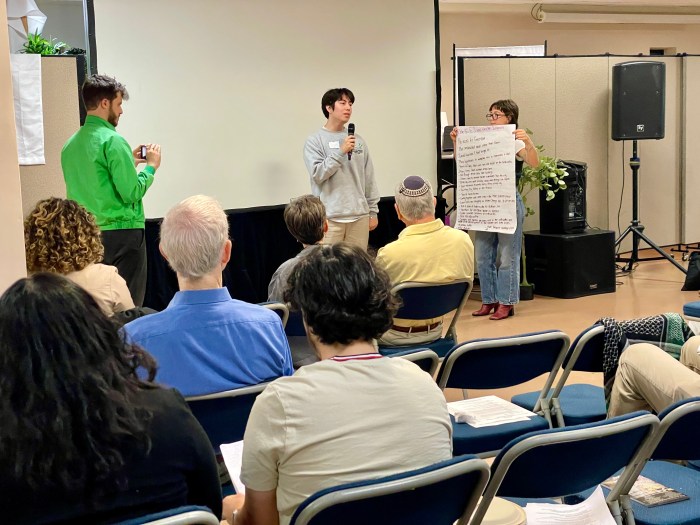
The energy and utility bills group described how just the words “renewable energy” make them think about the cost of utility bills rising and the reality that some Bronxites have to make tradeoffs to pay their utility bills. They suggested more investment in renewable energy to ensure that it is efficient in New York City and that there should be publicly owned utility companies.
Caesar Tobar-Acosta from the Northwest Bronx Community and Clergy Coalition presented the summary for the green jobs discussion, and the education discussion, which merged their small groups. They talked about the importance of educating students and preparing them for green jobs like solar panel installation.
“Our youth are going to be at the helms of those projects,” Tobar-Acosta said. “They will also be the ones that are going to be able to teach each other because they listen to each other more than they listen to most of us.”
Raymond Figueroa, a board member from South Bronx Unite, added that students should learn to respect the planet.
“We also talked about the opportunity for young people and young adults to develop relationships with mother earth,” Figueroa said. “You will naturally develop a capacity to defend what you have developed a relationship of love for.”

